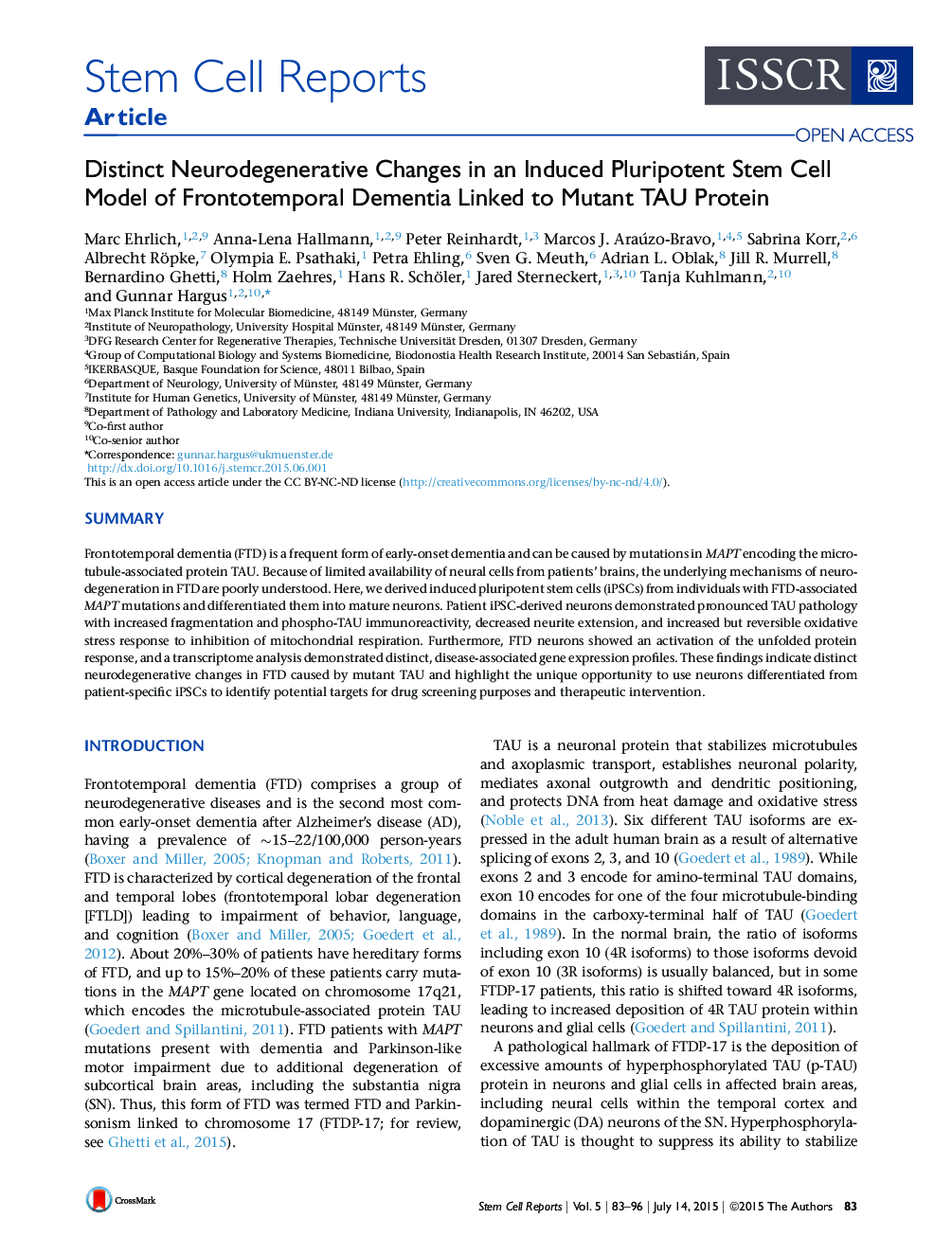| Article ID | Journal | Published Year | Pages | File Type |
|---|---|---|---|---|
| 2093496 | Stem Cell Reports | 2015 | 14 Pages |
•FTD-iPSC-derived neurons show TAU pathology and disturbed neurite function•FTD neurons are vulnerable to oxidative stress and show an activation of the unfolded protein response•FTD neurons demonstrate distinct alterations in whole-genome gene expression•Validation of distinct disease phenotypes in post-mortem brain tissue of FTD patients
SummaryFrontotemporal dementia (FTD) is a frequent form of early-onset dementia and can be caused by mutations in MAPT encoding the microtubule-associated protein TAU. Because of limited availability of neural cells from patients’ brains, the underlying mechanisms of neurodegeneration in FTD are poorly understood. Here, we derived induced pluripotent stem cells (iPSCs) from individuals with FTD-associated MAPT mutations and differentiated them into mature neurons. Patient iPSC-derived neurons demonstrated pronounced TAU pathology with increased fragmentation and phospho-TAU immunoreactivity, decreased neurite extension, and increased but reversible oxidative stress response to inhibition of mitochondrial respiration. Furthermore, FTD neurons showed an activation of the unfolded protein response, and a transcriptome analysis demonstrated distinct, disease-associated gene expression profiles. These findings indicate distinct neurodegenerative changes in FTD caused by mutant TAU and highlight the unique opportunity to use neurons differentiated from patient-specific iPSCs to identify potential targets for drug screening purposes and therapeutic intervention.
Graphical AbstractFigure optionsDownload full-size imageDownload as PowerPoint slide
